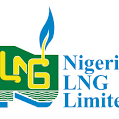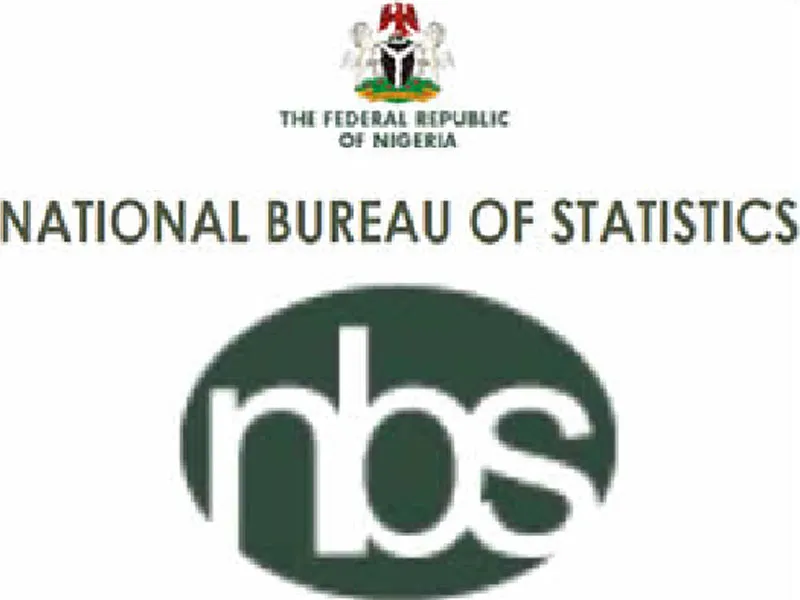Oil & Gas
NLNG Leads Stride to Gas-powered Economy

By Asowata Omosuri
A cardinal goal of the Federal Government is to transform the Nigerian economy into a gas-powered economy by 2030.
Ancillary to that is the hope to align the country with the global push for transition to cleaner sources of energy.
To achieve that lofty goal, the federal government adopted gas as the vehicle for its energy transition journey, declaring January 2021 to December 2030 as the Decade of Gas Initiative.
No doubt, the country is blessed with abundant gas resources; 208.62 trillion cubic feet (TCF) of proven gas reserves valued at over 803.9 trillion dollars, and potential upside of 600TCF of gas.
This has fueled the overarching objective of the federal government to utilise the nation’s abundant gas resources for socio-economic growth and development.
In order to actualise this objective, it is imperative for the government to leverage the achievements of the Nigerian LNG Company Ltd. in the global Liquefied Natural Gas (LNG) space.
Indeed, experts believe that NLNG, which marked its 33rd anniversary on May 17, has shown by its developmental strides, that the objective is achievable.
Apart from deepening domestic gas utilisation, the NLNG is said to have contributed significantly to the country financially.
According to information on the company’s website, it has so far contributed 100 billion dollars to the federal government’s coffers, and 6.5 billion dollars in taxes since it started operations.
It also paid 13 billion dollars to the Nigerian National Petroleum Company (NNPC) Ltd. for feed-gas purchase, and 16 billion dollars in dividends to the federal government.
Acknowledging these achievements, the Federal Inland Revenue Service in a statement signed by its Executive Chairman, Mr Muhammad Nami, on May 16, recognised the NLNG as the Most Supportive Tax Payer in the country.
Prompted by this accolade, Dr Muda Yusuf, Chief Executive Officer, Centre for the Promotion of Private Enterprise, told the News Agency of Nigeria (NAN) that the NLNG model should be adopted by the government in other public-private-partnership arrangements.
“The NLNG model has worked very well. It might not be perfect but of all the public private partnership arrangements that we have had, the NLNG model seems to be the best so far.
“The beauty of it is that there is practically no interference or very minimum interference in the management of the place.
“So, there is professionalism in the management, in the allocation of resources, in the recruitment and that has resulted in high level of performance,” he said.
Similarly, Mr Nuhu Yakubu, President, Nigeria Liquefied Petroleum Gas Association (NLPGA) and Managing Director, Banner Energy, said the NLNG was a pride to all Nigerians.
“Not only has the NLNG project endured for 33 years but it is a trail blazer for other similar projects that the Federal Government of Nigeria should mirror in the way NLNG is being administered and managed.
“Aside the huge revenue being generated from the NLNG for the Nigerian government, the company has brought human capital development to bear,” Yakubu said.
He said Nigerians working in NLNG were thorough professionals who were capable of competing with their peers globally.
Yakubu said the impact being made by the NLNG to deepen domestic gas utilisation in Nigeria could not be overemphasised.
“NLNG has gradually progressed from a 150,000MT intervention to the domestic LPG market to 250,000MT to N350,000MT and now to 450,000MT, which is maxing out their entire domestic LPG production to the Nigerian market.
“It is unprecedented and it means NLNG is meeting the yearnings of Nigerians. It is gauging the pulse of Nigerians and responding to it and we wish other corporations of that magnitude can do the same thing.
“We will be able to close the energy gap that we have in Nigeria because we have pervasive domestic energy poverty and need lot of interventions to address the issue so that at least every home in Nigeria will have access to gas.
“The NLNG intervention in the domestic market has catalysed growth and development in infrastructure on the supply side.
“From 2007 when the NLNG intervention started, we had only one terminal in Apapa, Lagos owned by the Pipelines Products Marketing Company.
“Today we have many privately owned coastal terminals across the country and there is also a lot of capital flow for infrastructure development because of the confidence brought in by NLNG,” he said.
However, Mr Michael Umudu, National Chairman, the Liquefied Petroleum Gas Retailers (LPGAR), branch of National Union of Petroleum and Natural Gas Workers (NUPENG), said NLNG needed to do more to ensure supply of LPG in the domestic market.
Umudu said the total amount allocated to the domestic market was insufficient as about 60 per cent of LPG being consumed in Nigeria was imported.
Mr Philip Mshelbila, Chief Executive Officer, NLNG, said the NLNG had for the past 33 years vigorously pursued its vision of being “a globally competitive LNG company, helping to build a better Nigeria.
“Our company has touched lives in significant areas such as economic empowerment, health, education, infrastructure development and sustainable community development.
“Over the years, it harnessed natural gas that would have otherwise been flared, thereby contributing immensely to a cleaner environment.
“And by delivering 100 per cent of its LPG production into the domestic market, it helps Nigerians transition to cleaner cooking fuels.”
Also, Mrs Sophia Horsfall, Manager, Corporate Communications and Public Affairs, NLNG, said the ongoing Train 7 project would help the company increase its allocation to the domestic market.
She said the project was expected to ramp up NLNG’s production capacity by 35 per cent from 22mtpa to around 30mtpa.
Horsfall noted that the project would form part of the investment of over 10 billion dollars, including the upstream scope of the LNG value chain, thereby increasing dividends and taxes accruing to the government.
Incorporated as a Limited Liability company on May 17, 1989, the NLNG was set up to harness Nigeria’s vast natural gas resources and produce Liquefied Natural Gas (LNG) and Natural Gas Liquids (NGLs) for export.
The establishment of NLNG is backed by the Nigeria LNG (Fiscal Incentives, Guarantees and Assurances) Act. Cap N87, Laws of Federation of Nigeria 2004.
The law, amongst other things, provides for the guarantees and assurances by the federal government to the company and its shareholders.
The NLNG is an incorporated Joint-Venture owned by four shareholders: the federal government, represented by NNPC Ltd. (49 per cent), Shell Gas B.V. (25.6 per cent), Total Gaz Electricite Holdings France (15 per cent) and Eni International N.A. N. V. S.àr.l (10.4 per cent).
Today, NLNG has a total production capacity of 22 Million Tons Per Annum (mtpa) of LNG and 5mtpa of Natural Gas Liquids (NGLs) from its six-train plant complex.
The company has 16 long-term Sale and Purchase Agreements (SPAs) with 10 buyers and controls about six per cent of global LNG trade.
By the strides of NLNG in its 33 years of existence, and the groundswell of goodwill, many Nigerians, and experts, believe that the company has the wherewithal to lead Nigeria’s march towards a gas-powered economy.
Asowata Omosuri is of the News Agency of Nigeria (NAN)
Oil & Gas
Petrol Price Stands at N1,052.31 per Litre in October – NBS

he National Bureau of Statistics (NBS) said the average retail price of a litre of petrol witnessed a drop from N1,184.83 in October 2024 to N1,052.31 in October 2025.
The NBS made this known in its Petrol Price Watch for October 2025 released in Abuja yesterday.
It stated that the October 2025 price of N1,052.
31 represented a 11. 18 per cent decrease over the price of N1,184. 83 recorded in October 2024.“Comparing the average price value with the previous month of September, the average retail price increased by 8.42 per cent from N970.59.”
On state profiles analysis, the report said Kogi paid the highest average retail price of N1,110.
00, followed by Sokoto and Borno at N1,105.93 and N1,101.63, respectively.“Conversely, Oyo, Nasarawa and Abia paid the lowest average retail price at N1,001.79, N1,009.38, and N1,012.50, respectively,’’ it stated.
Analysis by zones showed that the North-East recorded the highest average retail price in October 2025 at N1,072.74 while the South-West Zone recorded the lowest price at N1,032.81 per litre.
The NBS also stated in its Diesel Price Watch Report for October 2025 that the average retail price was N1,398.57 per litre.
It said that the October 2025 price of N1,398.57 per litre amounted to a 2.96 per cent decrease on a year-on-year basis over the N1,441.28 per litre paid in October 2024.
“On a month-on-month basis, the price increased by 9.45 per cent from the N1,277.81 per litre recorded in September 2025,’’ it added.
On state profile analysis, the report said the highest average price per litre of diesel in October was recorded in Enugu at N1,468.29, followed by Niger at N1,465.69 and Jigawa at N1,437.40.
On the other hand, the lowest price was recorded in Katsina at N1,301.24 per litre, followed by Edo at N1,307.84 and Kebbi at N1,308.94.In addition, the analysis by zones showed that the South-East Zone had the highest price of N1,415.85 per litre, while the South-South recorded the lowest price at N1,387.18 per litre.(NAN)
Oil & Gas
Dangote Refinery Says Its Intervention Prompted Petrol Price Reduction

Dangote Petroleum Refinery has said that its gantry price reduction actually prompted petrol price downward adjustments by marketers.
The management rejected what it described as series of misleading publications claiming that the recent reduction in pump prices by oil marketers is a consequence of the Federal Government’s reversal of the 15 per cent import tariff.
‘This narrative is entirely false, deliberately misleading, and inconsistent with actual market dynamics.
For the avoidance of doubt, the factor that prompted the price adjustment was our own reduction of PMS gantry and coastal prices on November 6.’ it said in a statement.According to the statement, the subsequent change in pump prices is now being wrongly attributed to a tariff decision in an attempt to distort the facts and misinform the public.
It will be recalled that Dangote Petroleum Refinery, on November 6, reduced its PMS gantry price from N877 to N828 per litre, representing a 5.6 per cent decrease, and its coastal price from N854 to N806 per litre.
These changes were publicly announced across major media platforms, including, but not limited to, The Punch, Vanguard, The Cable, Daily Trust, The Sun, The Street Journal, Petroleumprice.ng, New Telegraph, Business Hallmark, and several others, and were implemented well before marketers adjusted their pump prices.
The claim that the reduction in pump prices was driven by the suspension of the 15 per cent import tariff is therefore incorrect, it said.
‘The import tariff had received the approval of His Excellency, President Bola Ahmed Tinubu, GCFR as far back as October 21 for immediate implementation.
The refinery management noted that contrary to repeated claims by certain interests, imported products which are often below acceptable standards have consistently been sold at higher pump prices than the premium-grade fuel supplied by Dangote Refinery.
The continued importation of substandard fuel constitutes dumping, a harmful practice that undermines economic growth and industrial development.
Nigeria has witnessed the devastating consequences of such unchecked dumping before, including the collapse of the once-thriving textile industry, which was a major employer of labour, it noted.
Dangote Petroleum Refinery further reiterated its commitment to supplying high-quality, internationally benchmarked petroleum products at competitive prices, adding. “Our operations continue to moderate prices in the market, ensuring Nigerian consumers receive genuine value for money.”
Oil & Gas
NNPC Accelerates Transformation Ahead of IPO

The Nigerian National Petroleum Company Limited (NNPC Ltd.) is fast-tracking its transformation through strategic investments in infrastructure, governance reforms, and operational efficiency, positioning the company for a landmark Initial Public Offering (IPO).
Under its “Fit for the Future” strategy, NNPC Ltd.
aims for global competitiveness, public listing, and a pivotal role in connecting Africa to international markets through extensive gas infrastructure development initiatives.Group Chief Executive Officer, Bashir Ojulari, disclosed this during a dialogue at the 2025 Abu Dhabi International Petroleum Exhibition and Conference (ADIPEC), emphasising the company’s commitment to transparency, efficiency, and investor readiness.
Ojulari said NNPC Ltd. was steadily preparing for its IPO under the Petroleum Industry Act (PIA 2021) by improving governance, operational transparency, and accountability to meet international investment standards and expectations.
“Our IPO journey is mandated by law. We are publishing monthly performance reports and embedding global best practices to make NNPC a high-performing, investor-ready company with enhanced transparency.
“The ‘Fit for the Future’ project focuses on market leadership, building the necessary structures for IPO readiness, increasing investor attractiveness, and strengthening the company’s long-term competitiveness and operational capacity,” Ojulari said.
The CEO highlighted the transformation programme’s five core workstreams: production growth, gas monetisation, downstream optimisation, market leadership, and talent development, forming the backbone of NNPC’s strategy to become globally competitive.
Ojulari said the initiative was also reshaping NNPC’s workforce through innovation, digitalisation, and international exposure, enhancing staff capabilities via the “Talent Valley” programme and secondments with global partners.
He stated, “The new board and management were given a clear mission by the President: achieve two million barrels per day by 2027 and three million barrels per day by 2030.”
On gas development, Ojulari noted targets of 10 billion cubic feet per day by 2027 and 12 billion cubic feet by 2030, achievable through partnerships, operational efficiency, and access to broader investment capital.
He added that production recovery had been boosted by collaboration with international and indigenous operators, along with fiscal incentives under the PIA 2021, contributing to growth in oil output and investment confidence.
“Nigeria’s oil output has increased from 1.5 million to about 1.7 million barrels per day. We recently signed our first deepwater Production Sharing Contract in 15 years,” he revealed.
On gas, Ojulari said Nigeria’s reserves, exceeding 600 trillion cubic feet equivalent, positioned the country for full industrialisation and regional economic leadership, underscoring NNPC’s strategic focus on natural gas development.
He said NNPC was leading the Nigeria–Morocco Gas Pipeline Project, connecting West African economies and Europe, allowing countries along the corridor to both consume and supply gas, boosting trade and energy integration.
“The pipeline aligns with our vision to make Africa a major global gas player while promoting economic integration, industrialisation, and sustainable development across participating nations,” Ojulari said.
He added that NNPC was finalising partnerships with global operators to upgrade refineries to international standards, seeking partners with proven expertise and shared investment responsibility to enhance operational efficiency.
Ojulari reaffirmed NNPC’s commitment to advancing energy access and industrial growth across Africa, emphasising that its transformation journey was simultaneously commercial and developmental, with benefits for investors, governments, and communities alike.



























